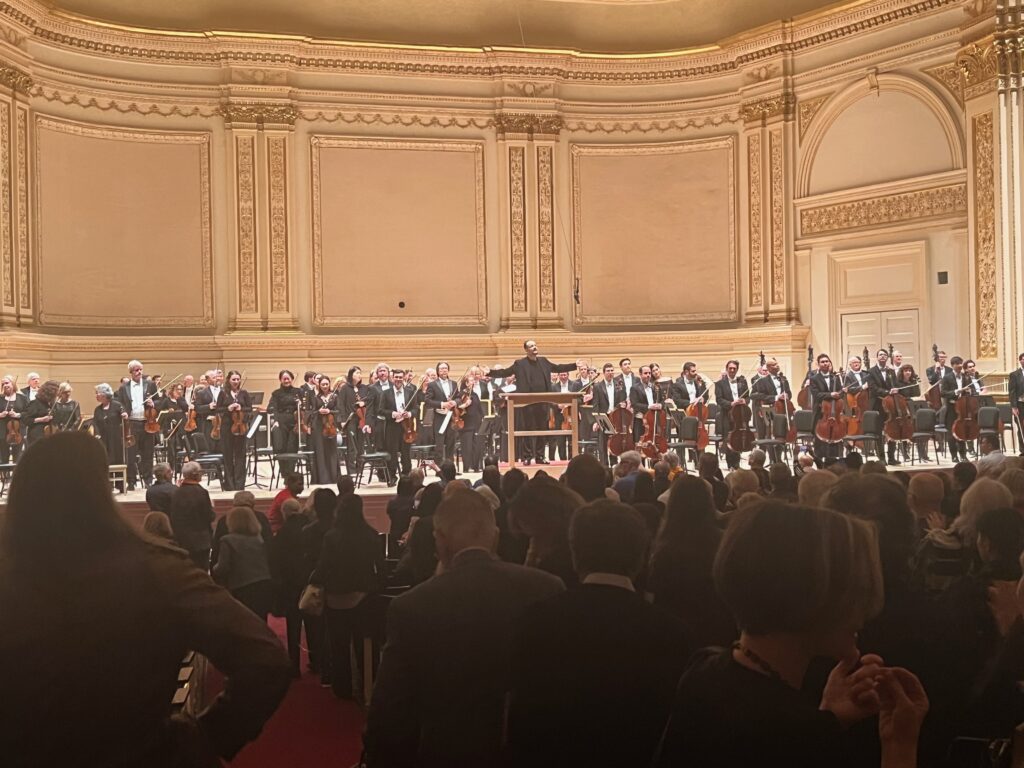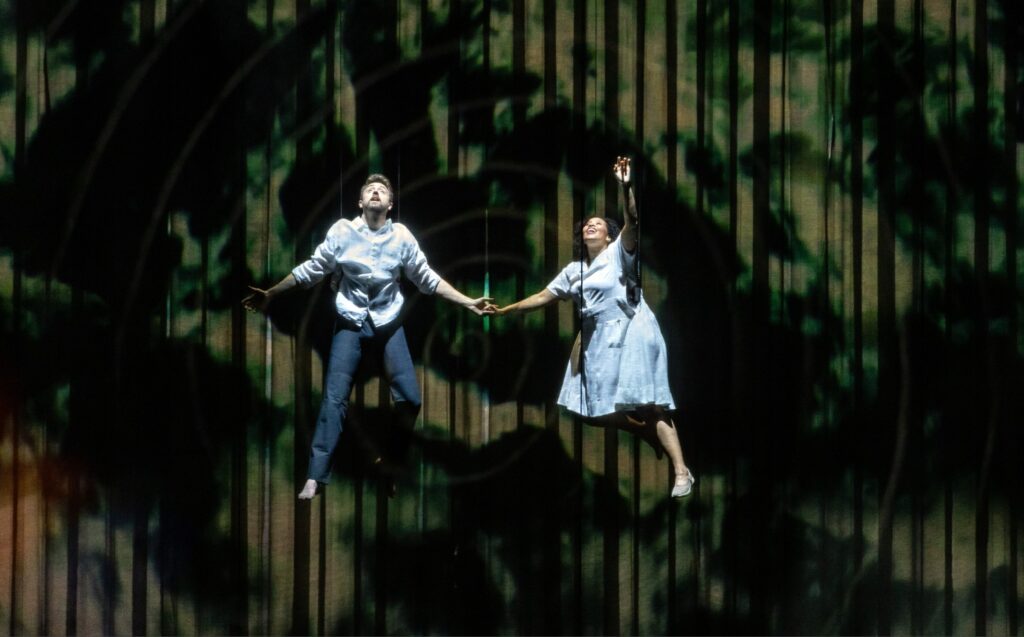VIEWPOINTS – Classical Music Roundup: Reveling in the riches of the BSO sound and re-assessing the Met’s production of DIE ZAUBERFLÖTE
- By drediman
- April 24, 2025
- No Comments
In recent days, I had the chance to take in a few notable opera and classical music performances at some of the city’s most prestigious venues. As per usual, read on for my thoughts on these nights of high culture.

BOSTON SYMPHONY ORCHESTRA
Carnegie Hall
This week, the great Boston Symphony Orchestra has returned to Carnegie Hall for two performances only. The first of these Andris Nelsons-led concerts occurred last night (RECOMMENDED), featuring soloist Mitsuko Uchida in Beethoven’s Fourth Piano Concerto, as well as Shostakovich’s enigmatic final symphony, the Fifteenth. Unsurprisingly, Uchida performed Beethoven’s invigorating concerto with clarity and intent. If at times her playing came across as boldly direct, it was a refreshing shift from some of the elaborate histrionics displayed by some of her younger star peers. In both the first and third movements, the Allegro moderato and the Rondo: Vivace, her playing was luminous yet firm, and she captured the soulfulness of the second Andante con moto movement with sublime feeling. Throughout, the Boston forces — as conducted by music director Nelsons — complimented the legendary Japanese-English pianist with a performance that was just as well-rounded and purposeful, resulting in an overall fully satisfying account of the popular concerto. Then after the intermission came Shostakovich’s mysterious late-career Fifteenth Symphony. The recognizable opening Allegretto movement was rendered with sharp buoyancy, while the following three movements — collectively moody and unsettled — were patiently conveyed by Nelsons and his world class ensemble with articulation and rich nuance (the balanced friction between brass and string sections was particularly ideal). So by the time we reached the work’s resigned conclusion (sonically marked by the haunting ticking of a clock), it’s as if we’ve gotten there by way of a winding philosophical manifesto.

DIE ZAUBERFLÖTE
The Metropolitan Opera
Before it concludes its spring run with this Saturday, I was also able to catch Simon McBurney’s production of Mozart’s Die Zauberflöte at the Metropolitan Opera (RECOMMENDED). New to the company last season — before arriving at the Met, the co-production was seen at the Dutch National Opera, as well as the English National Opera — McBurney’s staging is a far cry from Julie Taymor’s purely fantastical version, which continues to draw in crowds, particularly families, in a truncated production performed during the holiday season. Despite its immensely theatrical and imaginative presentation (complete with puppetry, real time hand-drawn projections, and live sound effects), McBurney’s vision of Die Zauberflöte is decidedly darker and politically murkier than your typical production of the ever popular singspiel. On second viewing, these nuances were more pronounced, notably as it relates to the director’s treatment of the opera’s gender politics (e.g., the menacing/toxic conveyance of Sarastro’s male-dominated religious cult, the somewhat sympathetic treatment of the Queen of the Night). I also found greater charms in the frequent interaction between singers and the purposely visible players of the orchestra — who are asked to do more than merely play their instruments — in my mind a captivating nod to the centrality of music to the work. As for the performances, they dug deeper this time around, led by tenor Ben Bliss and soprano Golda Schultz, both gleaming singers and compelling actors, as Tamino and Pamina. Baritone Thomas Oliemans returns as Papageno and is just as crowd-pleasing ever. Rounding out the cast are soprano Kathryn Lewek, who once again proves why she is the world’s Queen of the Night of choice, and bass Stephen Milling as a commanding, poker-faced Sarastro. In the pit, Evan Rogister conducts a perfectly balanced rendition of the tuneful Mozart score.

 Copyright © 2025
Copyright © 2025
Leave a Reply